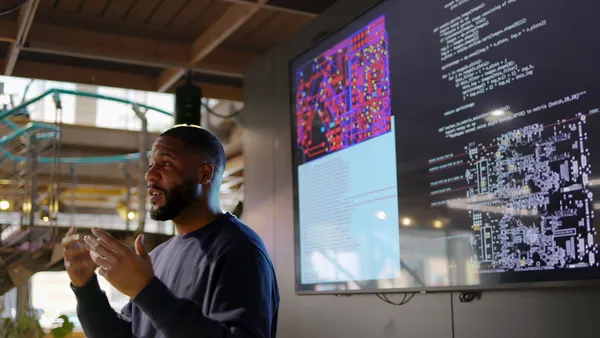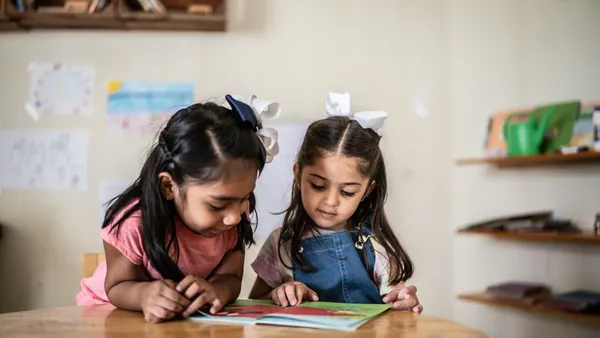Dive Brief:
- Educators may need to change how they assess students during the use of distance learning as a result of coronavirus shutdowns, and those adjustments may include honing in on what students must know and focusing solely on those elements alone, Singapore American School Director of Personalized Learning Andrew Miller writes for Edutopia.
- Miller suggests replacing some traditional assessments with more project-based learning tasks and giving students more time to complete them. Verbal presentations are another option educators may want to consider, as not every student has the same access to the internet and other resources at home.
- The goal, he says, is to make sure students feel teachers are supporting them, understanding educators aren’t just there to help with their learning, but with their lives.
Dive Insight:
School districts across the country are still debating whether to open buildings for the coming school year in fall. Remote learning is potentially going to remain in place, at least for some students. This environment has required a rethinking of not only how educators teach, but how they can assess what students have learned.
Conducting assessments for remote learning is difficult. It’s not necessarily the best environment for standardized testing with multiple choice answers, for example. Some standardized exams — like the 2020 AP exams, which moved online — were made shorter, and many states suspended high-stakes testing, including grade-level assessments.
There’s concern, however, that without these kinds of exams, it will be difficult to know how well students progressed and what kind of support they may need going forward.
Knowing how well students are learning is key to helping classes move forward or finding where they need more scaffolding, education leaders say. There are, however, alternative assessments educators can put into play to provide feedback on student learning while also strengthening other skills.
Boston University’s Center for Teaching & Learning, for example, suggests letting students have more options to show their mastery. These can include short answers, which give them more space to show their thinking, or building a digital portfolio, which can help students strengthen their online toolkit.
University of California, Berkeley’s Center for Teaching & Learning also notes that in preparing short answers, even if they’re one- or two-page papers, students may also be developing another valuable tool — the ability to organize their work and present information in a “concise and direct” manner.











